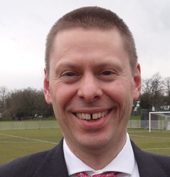Much is happening in terms of enforcement against fraud, but in comparison companies and individuals are not keeping pace, so the chairman of the Midlands Fraud Forum, Mark Sanguy, has suggested.
He was chairing the forum’s annual conference in Birmingham on February 20. On that point he told Professional Security: “It’s always been a question, is it prevention or cure, with fraud. A lot of activity is targeted at the prevention side, and maybe less on the cure side. But there may be in fact more money being spent on people reacting to situations that they haven’t stopped happening in the first place.”
He suggested that there has been a shift between up-front fraud prevention and back-end, remedial work; which is possibly a bad thing. It may mean, he added, that companies are not on top of fraud and are responding to things that they haven’t anticipated. Mark Sanguy, pictured, is a partner at law firm Eversheds.
Earlier, he told the annual event, attended by law firms, police, investigators and the local West Midlands police and crime commissioner Bob Jones, that cyber fraud is intensifying at a near uncontrollable rate and will find more victims. “The SFO have also promised us more investigations, and with ‘blockbuster funding’ from the Treasury (to provide funds up-front for larger fraud cases) this promise may be delivered to us sooner rather than later. A prosecution of a large corporate for bribery is most certainly on the horizon.
“For further developments, we also must keep a watchful eye on whether the Home Office decides to proceed with its proposal to incentivise whistle-blowers akin to the American style system, the so-called False Claims Act.
“Overall, fraud continues to be an area which is a problem for all aspects of society. The UK’s fraud prevention service [CIFAS] revealed a five per cent increase in the levels of overall fraud. It is difficult to say how much of this is attributed to better reporting mechanisms or just the fact that more fraud is taking place and there are many barometers, statistics and measures which do not reveal any real comfort that the battle is being won.”
As for whether whistle-blowers should be paid from the public purse for raising wrong-doing, the last speaker of the day, the former NHS chief executive turned whistle-blower Gary Walker, described it as ‘an incredibly bad idea’. He said that he did not want to go on TV as he did to reveal he signed a ‘super-gag’ with his former employers. Of his motive for blowing the whistle on patient safety concerns he said: “I just had to do it because it was the right thing to do.” He did suggest that whistle-blowers ought to have recognition. From the chair, Mark Sanguy raised Gary Walker’s point that society should see whistle-blowers as assets, not problems: “I think there is a long way to go before organisations do that.”
Other speakers included Alexandra Smith of the pro-whistle-blowing charity Public Concern at Work (PCaW) – which Gary Walker has just become a trustee of – and Clive Michel, head of the protect, prevent and prepare, economic crime command, at the new National Crime Agency.










